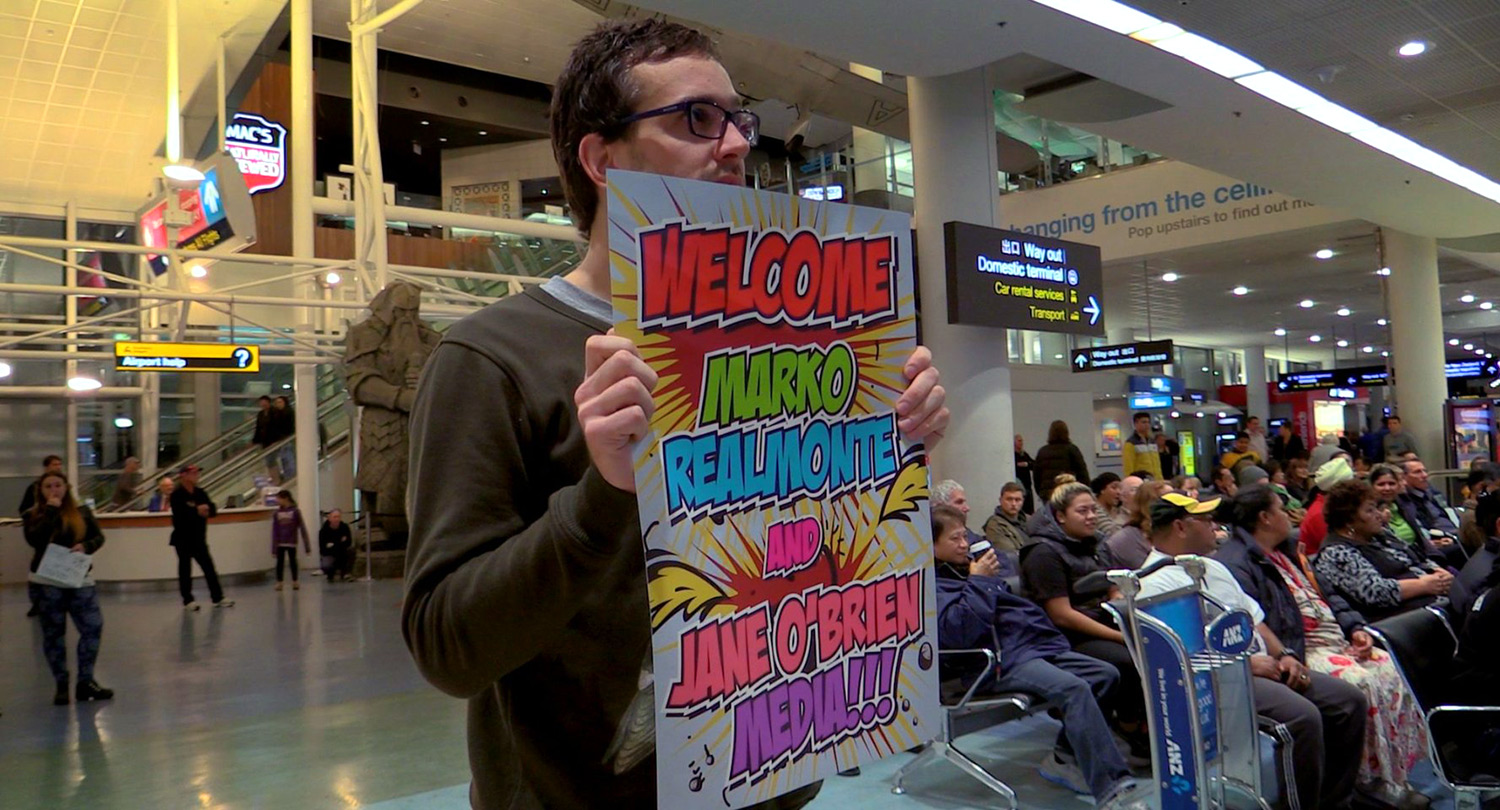The profoundly strange, shocking, and absurd documentary “Tickled” is one of those once-in-a-lifetime docs where a story lands in the lap of someone who is smart enough to pick up the thread and start to unravel a tightly knit web of deceit. “Tickled” is simply delightful in just how stranger than fiction it manages to be.
It’s hard to explain the story of “Tickled” because it’s just so crazy and convoluted. It’s presented in as straightforward a way as possible in the film, and yet it’s difficult to make all of the connections because they’re so insane. It all starts when David Farrier, a pop-culture reporter in New Zealand, stumbles upon an online contest for Competitive Endurance Tickling, where teams of young men submit videos of themselves tickling their pals restrained to a bed.
READ MORE: The 40 Most Anticipated Movies Of Summer 2016
With his interest piqued for a story, Farrier fires off a quick Facebook message to the production company, Jane O’Brien Media. The response, declining the request, descends into homophobic name-calling directed at Farrier; a strenuous emphasis on the fact that competitive endurance tickling is a profoundly heterosexual sport; and, eventually, threats of legal action.
This only stokes Farrier’s reporter instincts as he starts filming a documentary with a friend, Dylan Reeve (the two are co-directors of the film, as well as characters in this story). Jane O’Brien dispatches three representatives to Auckland to try to dissuade Farrier from continuing with the project, but soon, the pair are chasing down leads in America, uncovering a secretive, shadowy tickling empire.
 But what Farrier is most interested in is not that this might be homoerotic, but that whoever is behind this organization, be it Jane O’Brien, or another alias, Terri DiSisto, has exhibited a pattern of abusive threats, harassment, identity theft, and internet fraud directed at both the boys featured in the videos and casting associates.
But what Farrier is most interested in is not that this might be homoerotic, but that whoever is behind this organization, be it Jane O’Brien, or another alias, Terri DiSisto, has exhibited a pattern of abusive threats, harassment, identity theft, and internet fraud directed at both the boys featured in the videos and casting associates.
It’s a wild goose chase across the country, tangling with goons, aliases, and different reporters, until the filmmakers eventually expose the identity of DiSisto, allegedly anyhow, as David D’Amato, a New York assistant principal with a hefty trust fund to finance this tickling operation. As Farrier explores how DiSisto/D’Amato infiltrated the Muskegon, Michigan, MMA fighting scene to set up recruiting “tickle cells,” it’s impossible to imagine how much weirder and more sinister this twisted tale can get.
Farrier and Reeve smartly feature one Florida man who runs his own tickling fetish site to show that, yes, this is a legitimate fetish, and no, the harassment is not part and parcel with it. This film is not about kink-shaming or tittering at a niche fetish, but about exposing a wide-reaching, exploitative empire and the secretive entity behind it.
The irony is that D’Amato, who ruthlessly targeted the ticklers and tickled, destroying their online reputations and exposing their participation in the slightly embarrassing, homoerotic videos, is incredibly protective of his own privacy, shielding himself with a wall of lawsuits and anonymous threats, holing up in his Long Island condo. Farrier manages to confront him and catch him on camera once, but he’s off in a blaze of immigration threats and Mercedes-Benz exhaust.
 With Farrier’s deadpan Kiwi-accented narration, and their ad-hoc, improvisatory filmmaking style (a highlight: a secret camera hidden in a coffee cup), the style of “Tickled” feels like Nick Broomfield by way of “Flight Of The Conchords.” Something about the rather silly and cute nature of the videos, with the seriousness of the charges swirling around D’Amato and Farrier’s investigative approach results in some unintentionally (or intentionally?) hilarious moments and lines of voice-over.
With Farrier’s deadpan Kiwi-accented narration, and their ad-hoc, improvisatory filmmaking style (a highlight: a secret camera hidden in a coffee cup), the style of “Tickled” feels like Nick Broomfield by way of “Flight Of The Conchords.” Something about the rather silly and cute nature of the videos, with the seriousness of the charges swirling around D’Amato and Farrier’s investigative approach results in some unintentionally (or intentionally?) hilarious moments and lines of voice-over.
The film ends rather abruptly, and there are a few connections and character identifications that seem rushed or glossed over — a few pieces that don’t smoothly click into place in putting together the puzzle that reveals the bigger picture. But D’Amato has made it nearly impossible to see this bigger picture, putting his wealth toward distancing his identity from his actions.
As Farrier realizes, it’s not about a tickling fetish, but about a power fetish, about torturing people not through tickling but through controlling them financially and legally, harassing them with lawsuits and letters and robocalls and online bullying. It’s a fascinating look not only at this particular character and his wide reach, but at the evolution of the Internet, its utopian possibilities for connection, and the dark side of its power to expose and harm individuals within the system. [A-]





